Much has been written of late about the ‘problems’
of the Journalism industry and in particular the impacts of
consolidation and layoffs on local news coverage. However, I
would propose that to the extent that Journalism does in
fact have a problem, that problem is simply an extension of
the market failures of Capitalism. And to the extent that
solutions exist, they must be solutions that allow
journalism to move outside of the broken system that has
caused this situation. For this reason, a resurgence in more
engaged and community focused local journalism offers hope
for a way out of this situation. Nobody with any sense
really wants to go back to the ‘golden age’ of corporate
‘objective’ journalism which simply made a few magnates
and shareholders wealthy while promoting a status quo
editorial line. The future opportunity is rather to build
something new and exciting outside of this paradigm, as we
are trying to do with the Scoop 3.0 plan.
Jane Elizabeth, the managing editor of McClatchy Newsroom The News & Observer, tweeted in February in response to mass redundancies:
“This week we learned that a good portion of our … staff—and every other McClatchy newsroom—will be offered buyouts. … The business model may be broken but journalism is not. Journalism supports democracy & democracy supports journalism. Journalism will outlast us all. The faces and platforms and technology will change, but journalism will last as long as democracy does.”
However Jeffrey Billman for Indyweek offers a slightly more pessimistic spin on that last part:
“Democracy will last as long as journalism does, not the other way around. And if we don’t figure out a way to pay for journalism, journalism, especially local journalism, will die.” ...“I’d like to be as optimistic as Elizabeth: People want journalism, so journalism will persist… Someone has to pay for it, to make it sustainable. Right now, journalism has a problem. And journalism’s problem is democracy’s problem.”

I would personally go even further and say that journalism’s problem IS capitalism. Focusing on finding out a way to pay for journalism is not really the solution. We already have that - it’s called a paywall - and for a number of reasons it is neither ethical, feasible or a systemic solution to the problem to make readers pay for information that furthers democratic participation. Furthermore, making journalism even more profitable will just attract more and bigger sharks without a way to stop them from preying on the weaker players such as local news providers. This is already happening as seen in the countless closures, acquisitions and mergers gobbling up of niche and local papers and digital players in NZ and globally.
How bad is the
outlook?
Bad. As Jane Elizabeth points out: The model is broken. Yes, there are rapacious, short-sighted corporations to blame. And yes, the industry was too comfortable in the fat profit margins of the advertising era and too slow to adapt to changes in information consumption.
However, as Billman
points out there’s also a more fundamental problem:
“We’ve tried to supplement declining print
advertising with increased digital advertising and, for many
dailies, paywalls. But Google and Facebook have scooped up
almost all of the digital revenue—58 percent between just those two
companies in 2017—and people became acclimated to getting their internet content for free.
And because the remaining digital ad revenue is dependent on
page views, media chains are cheapening their own
products, churning out loads of aggregation to hit click
quotas.”
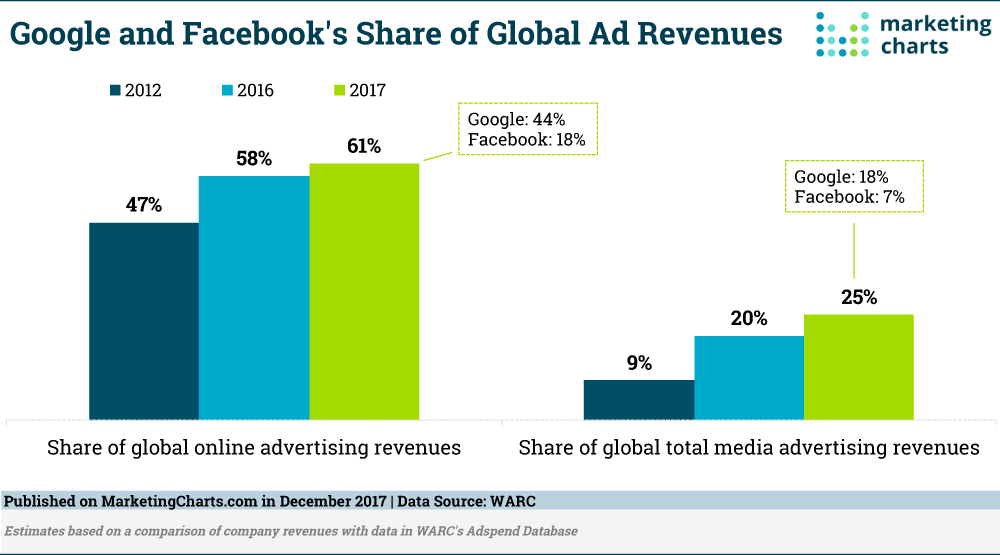
In response to this situation, the Corporate Media has undergone a frenzy of consolidation. 2018 saw the further consolidation of news and media companies in the US across all traditional distribution channels: television, radio and print. IHeartMedia, owner of the largest radio network in the US, filed for bankruptcy with $20B in debt. Its next largest rival, Cumulus filed for bankruptcy a few months earlier. Disney and Comcast have been in a bidding war to buy the entertainment division of 21st Century Fox since the summer of 2018. Discovery Communications completed a merger with the Scripps Networks and Time Magazine was acquired by Meredith Corporation for $2.8 billion only to be put up for sale again four months later. NBCUniversal has continued to make equity investments in Buzzfeed and Snapchat to grow its digital portfolio. Niche digital outlets with substantial audiences have also been forced to close. Media darlings like Buzzfeed and Vice both missed 2018 revenue targets by over $60 million and now have laid off staff in 2019.
In an increasingly globalised media environment, the NZ media sector is not immune to the buyouts, mergers and acquisitions. Broadcasting minister Kris Faafoi told Mediawatch in December that he had taken sounding from local media bosses who told him global online media rivals could put them out of business. This is not as far fetched as it seems. Already Stuff’s owner has merged and announced it will be breaking up and selling off the spare parts of New Zealand’s largest online publisher.
Nor are NZ publishers immune to the ongoing decline in the profitability of print and digital media. In a sobering survey recently, Stuff reporter Tom Pullar-Strecker reckoned the three biggest private media companies today - Stuff, NZME and MediaWorks - are worth only about one-tenth of their market value in 2000 - or all together, roughly the same as that of Hallensteins and Glassons clothing chain.
NZME Invests
in New Verticals and Paywall

Paul MacBeth reports for BusinessDesk that NZME, publisher of the NZ Herald newspaper also reported a 44 percent slide in annual profit for 2018. The company claims this was due to its increased investment in new revenue streams it hopes will replace a structural decline in its traditional print business. NZME also invested $6.1 million (a sum NZME pointed to in explaining its big fall in earnings) in its new digital classifieds businesses, which the company sees as drivers of long-term growth.
The company apparently has high hopes for OneRoof real estate site taking on TradeMe, however the other two sites, Driven and Yudu, an employment site, seem to have failed to live up to expectations. In the understatement of the year, NZME CEO Michael Boggs told Newsroom that the media market was “tough“ in 2018, with falls in business confidence affecting returns. He somewhat wishfully also pronounced NZME’s financial result “not a bad outcome”.
Meanwhile, NZME also announced recently it will be charging online audiences to access what it is calling "premium journalism” from June 2019. Newsroom reports NZME hopes to attract up to 10,000 subscribers to the paywalled product by June 2020, raising a “modest” amount of money but outlaying $1.2 million in extra costs. A paywall could be profitable in its second year and will feature paid content from international publishers such as the Washington Post who are providing the software tools.
Stuffed
or Starved?
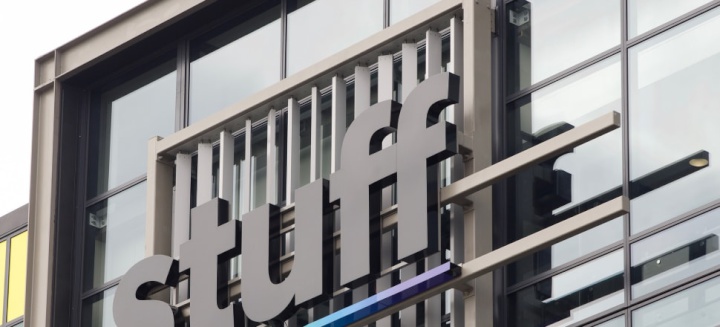
New Zealand’s biggest digital publisher, Stuff's Australian owner Fairfax was taken over by Nine Entertainment Co in 2018. Nine doesn't want to keep the Kiwi business and is preparing it for sale. BusinessDesk reported that Stuff's 2019 first-half earnings fell at an even steeper pace than its already shrinking revenue. In its first reporting period as a subsidiary of Nine, the New Zealand business reported earnings before interest, tax, depreciation and amortisation of A$14.5 million in the six months ended Dec. 31, compared to A$18.9 million a year earlier.
Stuff downsized last year, selling or closing a
third of its mastheads - largely unprofitable community and
regional publications. Stuff also adopted a digital-first
mentality as it grappled with the declining trajectory of
print advertising and accelerated efforts to transfer more
of that business online, despite about half its revenue
coming from just five of its mastheads.
Stuff still
describes the core of what it does as producing quality
journalism. However, it no longer views itself as a media
company, having branched out into other products, including
internet service provider Stuff Fibre, hyperlocal website
Neighbourly, and electricity retailer energclubnz. Stuff has
reportedly not ruled out bringing in a Paywall although are
not actively pursuing it at this time.
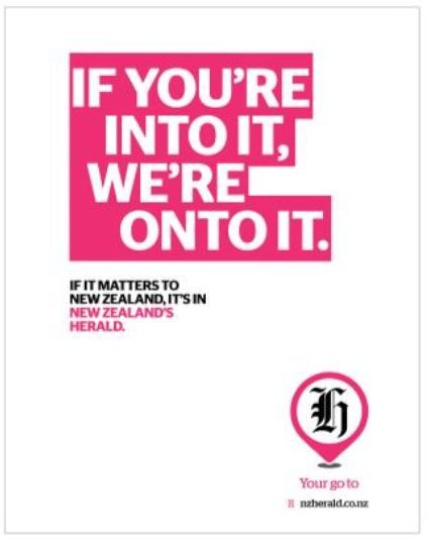
The major Corporate Media players in New Zealand have also changed their marketing focus, launching new campaigns in 2019. The newly launched Herald advertising tells us that they are providing comprehensive and local ‘community focused’ coverage, as if saying this loud enough will make it true. However, they forgot to add, “... if you can afford to pay for it” as their paywalled ‘Premium’ content will e available only to those privileged enough to be able to afford to pay for it.
Real solutions or just shuffling
deckchairs?
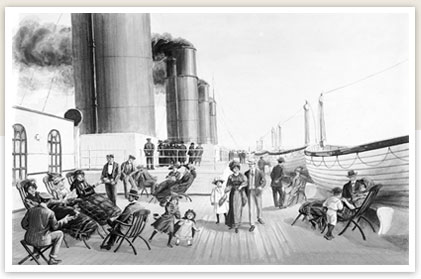
All this marketing and apparent change from NZ’s big players may sound innovative and fresh to the uninformed observer, but how different is it really to the “business as usual” approach? Both Stuff and NZME appear to be following the standard corporate journalism solutions of cutting costs by centralising and layoffs, limiting the diversity of their coverage and considering imposing an unequal user pays model. They are also heavily investing in new verticals that have absolutely nothing to do with providing a quality journalism service in an attempt to provide greater profits to shareholders and sustain lossmaking journalism.
Is this really an approach that is likely to deliver better outcomes for democracy or keep New Zealanders better informed? Not really, NZME’s ‘Freemium model’ essentially comodifies information and makes it so that wealthy people who can afford to pay for information get access to a more comprehensive service than those who cannot. This inequal information availability based on socio-economic groups is already pronounced in NZ society and this will simply make it moreso.
News Deserts and
Democracy
In the USA, Digital First Media, which despite its name owns several print community newspapers throughout the country, has been crushing its local papers with redundancies and layoffs and cutting hundreds of reporters. Amy Westervelt writes:
“That’s not because those papers haven’t been profitable, but because they haven’t been delivering high enough returns to the global hedge fund that owns a majority stake in Digital First.”
Similarly, with Stuff and NZME, it is not that rural, niche and community papers are not profitable or have a good following. In fact, RNZ reported at the time of Stuff closing NZ Farmer and 15 other rural titles, that most farmers still to prefer news on paper to online. The reality is that it is simply easier and cheaper to cut costs by centralising operations and providing a one size fits all, cookie cutter media coverage with little locally focused content and few on-the-ground journalists. However, it is clearly not increasing the quality or diversity of coverage provided to the reader and is in fact resulting in ‘news deserts’, towns or areas of cities with no local news coverage.
The Columbia Journalism Review has reported extensively on the rise of news deserts in the US. Even more concerning for democracy, Politico has reported on the clear correlation between lack of local news outlets and Trump supporters in the 2016 presidential elections. Newsrooms are relying more and more on wire services like the AP and Reuters as they cut staff under budget pressures.
The NZME approach of tapping into paid content from a number of overseas sources for its ‘premium content’ is simply following this international trend towards consolidation and decreasing diversity. The paywall approach is also likely to contribute to the creation of news deserts in impoverished and rural parts of New Zealand as news becomes a commodity. Stuff’s approach of closing rural and niche titles is similarly concerning in this regard.
The impact of all this is very serious and goes beyond the fortunes of the leading US or NZ media companies. We should all be highly worried about what is happening to local news and how it impacts our democracy. For these reasons, Scoop has developed an ‘ethical paywall’ approach which underpins the ScoopPro service and our Scoop 3.0 plan. This attempts to create a fairer solution through charging for professional use only and maintaining comprehensive free access for the public. ScoopPro is now on sale with 25% off annual rates until 31 March.
Find out more about ScoopPro for commercial use here
One other positive note for New Zealand is that this environment of retreating local news appears to be playing into the hands of our publicly owned broadcasters TVNZ and also RNZ. TVNZ also launched an ad campaign this year, this one rightly highlights their network of reporters in the field. This network of real reporters is something that looks to give both TVNZ and RNZ an edge over rivals such as Stuff and NZME as they shed titles and journalists. As TVNZ looks to move further into the digital world they will find themselves competing with the Herald directly and according to reports, may well even look to acquire Stuff when it is sold off this year.
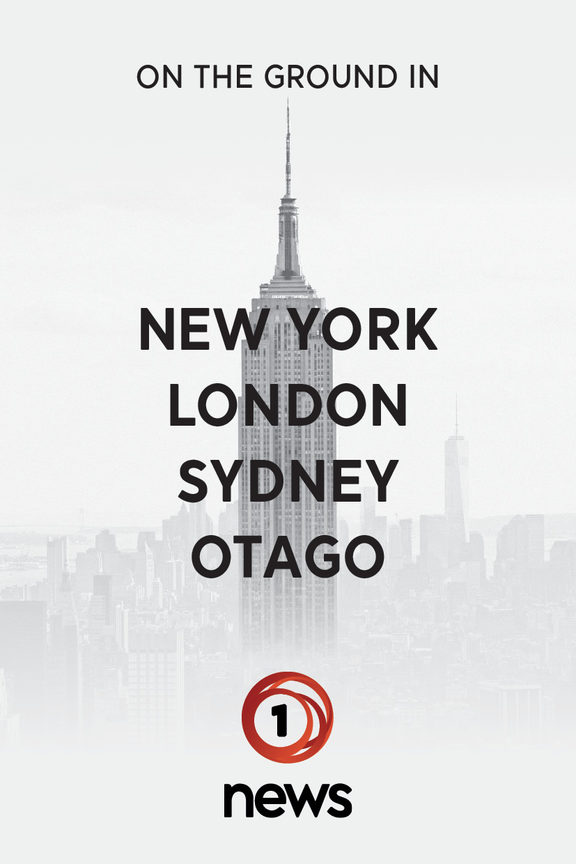
Fixing the Broken
Corporate Media Model
The core of the problem in the media is that the structure of most media companies as privately traded enterprises makes them susceptible to acquisition and takeovers and provide perverse incentives to reduce quality and diversity of coverage. For instance, CEO salaries in these media companies remain high despite all the cost cutting and layoffs and is clearly not tied in any way to the quality of their companies’ performance of the valuable societal role of public interest journalism. Like any corporate enterprise, Media shareholders want to see profits and not much else. If that means cutting local news coverage, laying off experienced journalists and replacing them with robots, then the dictates of the Corporate system mean that is what must happen.
The corporate journalism model simply does not question whether this Corporate Media model is an appropriate way to manage the provision of a vital democratic service such as providing news coverage. Why would it? CEOs continue to get paid massive salaries and receive bonuses while cutting local news services and public service content and laying off staff. In 2017, US media conglomerate McClatchy’s CEO Craig Forman took home $2.4 million in salary, stock awards, and a $900,000 bonus. According to the Columbia Journalism Review, his newest contract has a $1 million base salary, a $1 million bonus and a $35,000-a-month housing stipend. As a local example, TVNZ chief executive Kevin Kenrick took home a bonus of $460,054 in 2018 - part of his total remuneration of $1.43m.
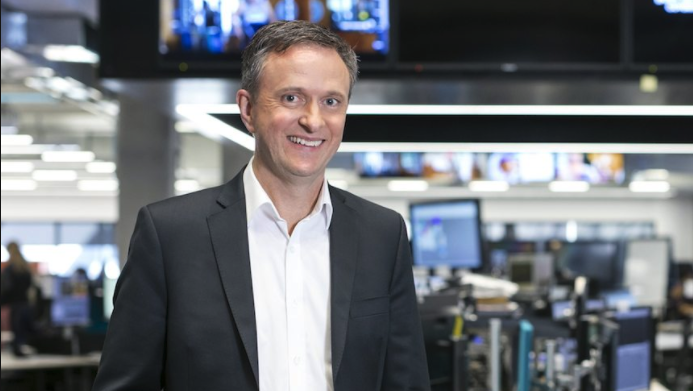
Kevin Kenrick, TVNZ CEO
Matt DeRienzo, executive director of the Local Independent Online News Publishers organization (LION) asks the question of what is the solution for local news and the local news deserts that already exist? He is clear on what is not the solution.
“It’s not gonna be Gannett and Gatehouse going back into these communities and hiring. Even if they find a magic revenue bullet tomorrow that money is going to go to their shareholders… communities have to take responsibility for their own local news needs, and so you’re seeing grassroots solutions emerging and communities supporting them, in a variety of models that include both for-profit and nonprofit, and niche and general interest, and public media.”
In other words, if we want to change this broken system, more of the same is certainly not the way to do so. Rather, what we need is resilient solutions that sit outside of the corporate financial system entirely. If the root of this problem is capitalism, then the only robust answer is for local journalism to adopt a different business model to the Corporate Media ‘business as usual’ model. What is needed is rather a new and more distributed governance model for the companies that produce journalism that protects them from the vagaries of the capitalist market.
Public Media like RNZ and TVNZ are certainly a part of the mix in New Zealand, however we also need decentralised local journalism experiments owned locally and in resilient non-profit or cooperative models outside of the Corporate system. Thankfully, such models already do exist - a number of non-profit, reader owned and member funded and operated online newsrooms are having great success globally and Scoop is one of them.
Trust owned newsrooms such as Scoop (owned by the Scoop Foundation) and The Guardian or ProPublica are good examples of this. Cooperative newsrooms like The Colorado Sun or Bristol Cable are another great example of resilient media structures. These newsrooms are not susceptible to acquisition or hostile takeovers or shareholder inspired interference as corporate journalism organisations are. Engaged journalism is another model having success by optimizing for trust, with transparency and engagement with the local community.
The Scoop 3.0 plan aims to incorporate elements of a few of these different models to ensure that Scoop is a resilient, diverse, public interest focused media company long into the future. We will also combine this approach with Scoop’s unique ScoopPro commercial membership revenue model to offer something a little different to the world of progressive online journalism.
To help us ensure that this happens, we are seeking another 50 organisational members to join the ScoopPro ‘Founding 300’ organisations. These companies (including the 250 existing members) will receive special benefits and will be a core part of this new membership community as we progressively add new membership features and services. They will also have VIP access to the Scoop 3.0 equity crowdfunding offering later this year.
Join the ScoopPro Founding 300




 Richard S. Ehrlich: Deadly Border Feud Between Thailand & Cambodia
Richard S. Ehrlich: Deadly Border Feud Between Thailand & Cambodia Gordon Campbell: On Free Speech And Anti-Semitism
Gordon Campbell: On Free Speech And Anti-Semitism Ian Powell: The Disgrace Of The Hospice Care Funding Scandal
Ian Powell: The Disgrace Of The Hospice Care Funding Scandal Binoy Kampmark: Catching Israel Out - Gaza And The Madleen “Selfie” Protest
Binoy Kampmark: Catching Israel Out - Gaza And The Madleen “Selfie” Protest Ramzy Baroud: Gaza's 'Humanitarian' Façade - A Deceptive Ploy Unravels
Ramzy Baroud: Gaza's 'Humanitarian' Façade - A Deceptive Ploy Unravels Keith Rankin: Remembering New Zealand's Missing Tragedy
Keith Rankin: Remembering New Zealand's Missing Tragedy